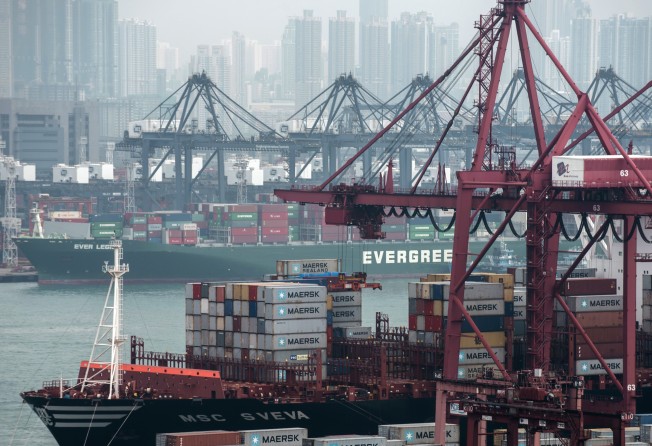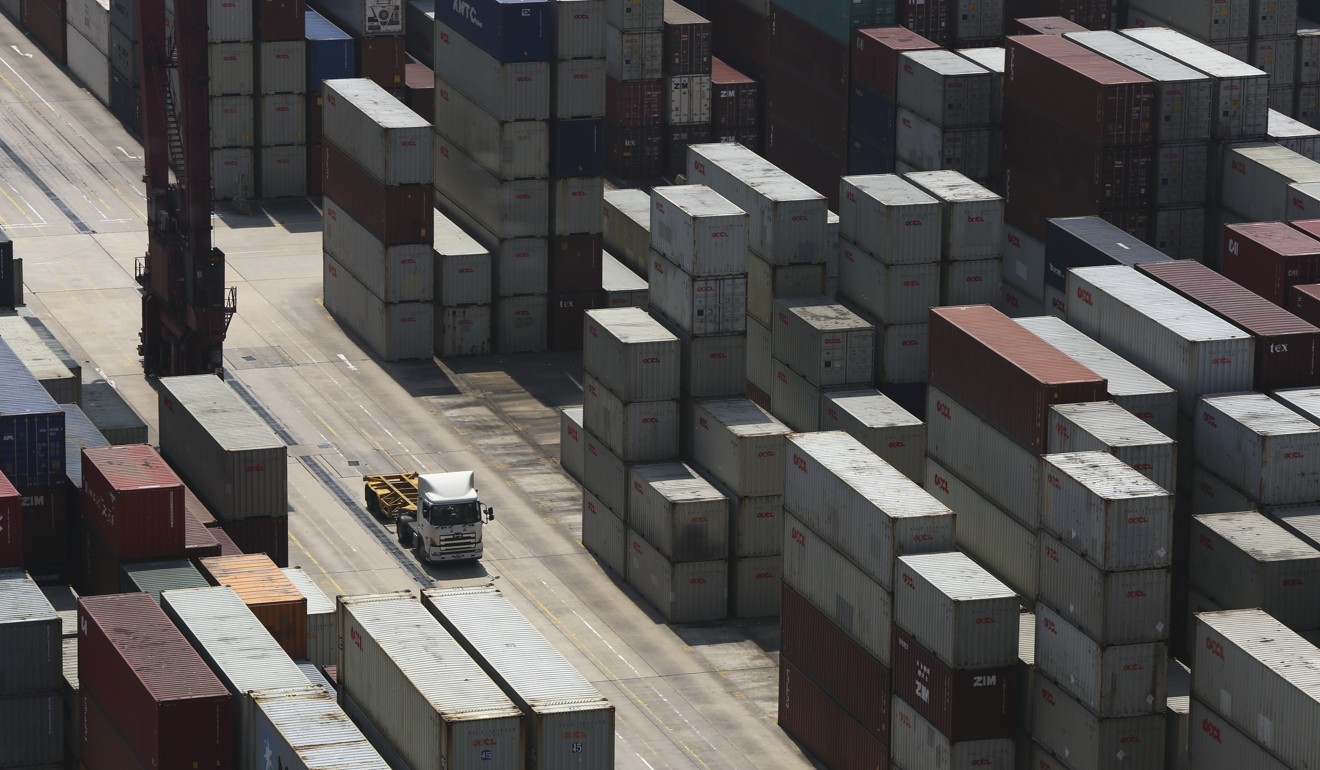Could Kwai Tsing container terminal site be the next Canary Wharf?
Daniel Shih of Colliers says the site has the potential to be developed into Hong Kong’s third central business district

The site of Kwai Tsing Container Terminal should be transformed into Hong Kong’s third central business district to meet growing demand for office space from mainland firms, according to property consultant Colliers International.
The site should be repurposed for both residential and commercial uses, while the container port itself should be moved to a less prime location, said Daniel Shih, director of research at Colliers.
He believes it could become Hong Kong’s answer to London’s prestigious Canary Wharf.
The port, once the biggest in the world, has been in decline for years and many politicians and members of the public wish to see the land it occupies put to better use.
Shih’s call goes a step further than thinktank Our Hong Kong Foundation’s suggestion to build just housing on the land in Kwai Chung.
Shih said Hong Kong’s supply of office space in the coming few years may fall short of growing demand from mainland firms.
“Most people discussing the new purpose of the container terminal site are focusing on converting it to residential use only,” said Shih. “But I think the site should grab a bigger opportunity, when the general supply of office space in Hong Kong runs dry in the future.”
Shih said the Kwai Tsing terminal, because it’s so large, has more potential than East Lantau, for which the government suggested carrying out reclamation to make it a metropolis in a report. It has the potential to become a new central business district, in terms of its geographical location, amenities and infrastructure.
“Commercial districts have higher requirements on surrounding infrastructure than residential districts do. Kwai Tsing would find it easier to mature for business use with such complete existing infrastructure,” Shih added. “In contrast, East Lantau Metropolis, as an island in the middle of nowhere, needs a lot of resources to start from scratch and get it ready for business. Some people are still avoiding offices in Kowloon East because of insufficient infrastructure and amenities.”
Shih said commercial use should be prioritised in Kwai Tsing, even though he suggests the area should be mixed with residential use.

“If the area is zoned for another use, owners of private land nearby may build more residential buildings too,” Shih added. “The consideration should not be confined to the site itself only.”
Shih said that whether the transformation – including relocating the entire chain of the terminal operations in Kwai Tsing – should be abrupt or gradual is subject to more studies.
“A comprehensive planning process and discussion with the existing terminal operators will be necessary in order for a smooth implementation. With land owned by a handful of terminal operators, the redevelopment can be more holistic rather than piece meal,” said Shih.
The first container berth at Kwai Tsing opened in September 1972. The facility grew and by the 1990s was the largest container port in the world. It held the ranking for a decade, as Hong Kong became the trade gateway to China.
In 2014, Kwai Tsing Port handled over 17.6 million units, roughly 80 per cent of the Hong Kong’s total container throughput.
By 2015, Hong Kong’s port had slipped to being the world’s fifth biggest. A report by Deutsche Bank in that year forecast the port’s business would shrink by 50 per cent over the next 10 years. A recent report by Hang Seng Management College is equally gloomy about the terminal’s future.
Altogether, there are 24 container berths spread along a quay stretching 7,694 metres in Kwai Tsing Port, providing an estimated capacity of 21 million units per annum.
Shih said there is a need to find an alternative site for the container port.
“It is impossible to give up the container terminal business when Hong Kong has such a busy port, though the importance of the container terminal has declined over time under economic transformation,” Shih said. “Good locations may be places further away than Tuen Mun and south of Cheung Chau, considering the depth of waters there and the future size of mega container ships.
“Issues related to cost and land supply have caused the development of Guangzhou and Shenzhen to grow faster than Hong Kong in terms of container throughputs, but we should not completely give up on this,” Shih said.
Property management company JLL agrees that the Kwai Chung site should be repurposed.
“On paper, relocating the Kwai Chung container port to free up urban land for development makes a lot of sense, and the relocation of Hong Kong’s airport from Kai Tak to Lantau Island has proved that this can be done,” said Denis Ma, head of research at JLL.
“The challenge, however, will be executing the move given that the government will either have to resume land or negotiate land premiums with existing stakeholders, both of which will take considerable time.”
But Boston Consulting Group appeared to have reservations about the idea.
“Cargo throughput in Hong Kong might have seen slower growth in the last decade, but Hong Kong still has geographical advantage in the cargo business,” said Ted Chan, partner and managing director at Boston.
“Relocating the terminal to a more distant location may further weaken our advantage and position in the cargo business.”